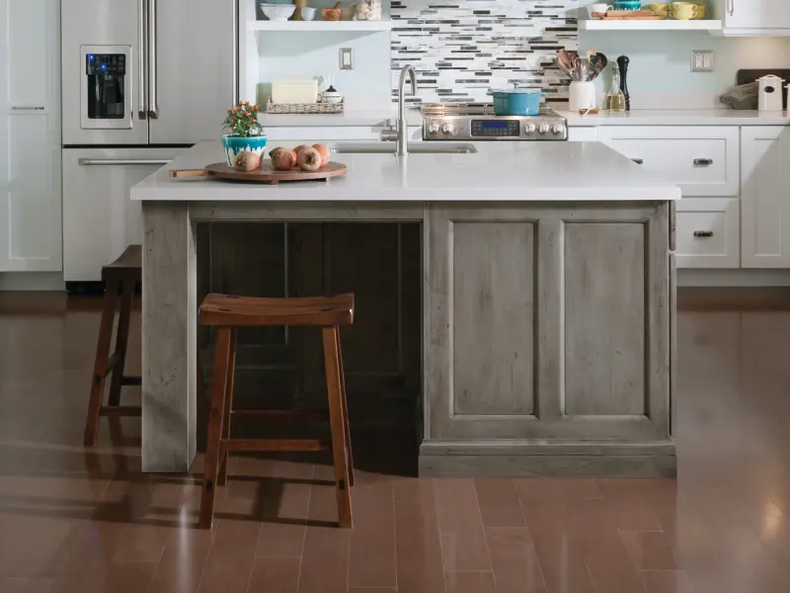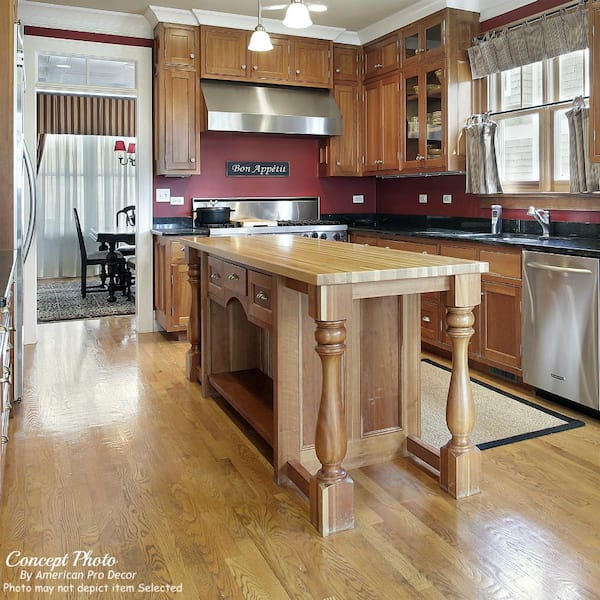Accomplish the Perfect Balance of Kind and Function with Legs For Kitchen Island
Accomplish the Perfect Balance of Kind and Function with Legs For Kitchen Island
Blog Article
Checking Out the Numerous Designs of Legs For Kitchen Area Island: What You Need to Know
In the world of cooking area style, the choice of legs for your island is more than a simple aesthetic choice; it considerably influences both style and practicality. Industrial designs can pass on a tough character, while rustic farmhouse legs evoke a feeling of heat and practice.
Modern Steel Legs
Modern steel legs have come to be a prominent option for cooking area islands, using both sturdiness and a sleek visual. These legs are usually crafted from products such as stainless-steel, light weight aluminum, or functioned iron, making them immune to deterioration, which is important in a high-traffic location like the kitchen. Their durable building and construction makes certain security, suiting the weight of heavy kitchen counters and everyday usage.
In addition to their toughness, modern-day steel legs come in different layouts, from minimalist to commercial styles, allowing homeowners to customize their cooking area islands to their special tastes. The reflective surfaces of steel can include a modern touch, boosting the general illumination of the cooking area area. Additionally, metal legs can be combined with a wide variety of countertop materials, balancing flawlessly with granite, quartz, and even redeemed timber.
Another benefit of metal legs is their convenience of upkeep; they can be simply wiped down to remove any discolorations or spills, making sure durability and sanitation. Overall, modern-day metal legs not just provide architectural assistance for cooking area islands but additionally add dramatically to the visual appeal, making them a popular choice for contemporary cooking area styles.
Typical Wood Legs

Traditional wood legs can take different kinds, consisting of transformed, tapered, or square designs. Turned legs include a spherical profile with elaborate describing, adding a touch of sophistication. Tapered legs, on the various other hand, give an even more structured look while maintaining a traditional ambiance. Square legs supply a durable appearance, which can develop a sense of security and weightiness in the layout.
Furthermore, wood legs can be tarnished or repainted to match existing cabinets or decor, offering modification alternatives that enhance the total aesthetic of the kitchen. Pairing these legs with a timber countertop or other wooden aspects can create a natural appearance, emphasizing the heat and personality that conventional timber offers cooking area islands. Thus, typical timber legs stay a timeless selection for those looking for sophistication and performance in their cooking area style.
Industrial Design Legs

The versatility company website of commercial legs allows them to enhance a variety of kitchen counters, from reclaimed timber to brightened concrete. Their inherent toughness makes certain resilience, making them appropriate for sturdy usage. Additionally, the minimal layout commonly connected with industrial style legs can improve the total space without overwhelming it.
Industrial legs can be incorporated into numerous cooking area configurations, from open-concept rooms to a lot more portable styles. Inevitably, industrial design legs can transform a cooking area island into a declaration item, weding type and feature in an unified way.
Rustic Farmhouse Legs
Rustic farmhouse legs embody a captivating mix of custom and heat, making them a prominent choice for kitchens that seek to evoke a comfy, inviting ambience. Characterized by their sturdy building and all-natural materials, these legs often include wood with a troubled coating, showcasing the charm of flaws that features age. This aesthetic not only reinforces the farmhouse style yet additionally adds read this post here character and credibility to the kitchen area space.
Commonly, rustic farmhouse legs are created with durable, chunky accounts that supply useful reference significant support for the kitchen area island. Commonly crafted from recovered timber, they add to a lasting design while using an unique story through their varied appearances and tones. The all-natural grain patterns and knots discovered in these materials enhance the aesthetic charm and bring a sense of nature indoors.
Along with their aesthetic worth, rustic farmhouse legs can be matched with various tabletop materials, such as butcher block or stone, producing an unified equilibrium in between rustic appeal and modern-day capability. This versatility enables house owners to customize their cooking area islands according to personal preferences, making sure that the room continues to be both practical and elegant for daily usage.
Special Decorative Legs
Often neglected, distinct ornamental legs can transform a typical cooking area island right into a statement item that reflects private style and creativity. These legs offer not just as structural supports however additionally as artistic expressions that improve the general visual of the kitchen area.
Offered in a selection of designs, distinct decorative legs can vary from detailed wrought iron scrollwork to boldly transformed timber patterns. For those leaning in the direction of an extra contemporary look, smooth steel legs in geometric shapes can provide a minimalist yet attractive charm. Redeemed wood legs with artisanal detailing bring heat and personality, aligning with lasting style principles.
Integrating special ornamental legs right into your cooking area island permits countless modification. Shade, structure, and kind can be controlled to harmonize with existing style or to introduce an exciting comparison. For instance, combining a rustic wooden top with sleek brass legs creates a striking association that attracts the eye.
Ultimately, choosing one-of-a-kind ornamental legs is an opportunity to express individual taste while making certain functionality. By focusing on both layout and durability, house owners can develop a kitchen island that not only stands out but additionally acts as a functional focal point for cooking endeavors.
Conclusion
Modern steel legs offer a streamlined look, while typical wood legs use heat and character. Industrial-style legs present an urban appeal, and rustic farmhouse legs highlight natural charm and sturdiness.
A variety of standard wood legs can improve the appeal and warmth of cooking area islands, appealing to property owners that prefer a classic visual. Coupling these legs with a wood countertop or various other wood components can produce a cohesive appearance, stressing the warmth and personality that typical wood brings to cooking area islands. Modern steel legs give a streamlined appearance, while standard wood legs offer heat and character. Industrial-style legs introduce an urban charm, and rustic farmhouse legs highlight natural elegance and strength. Special attractive legs offer as a means of personalization, making sure that the cooking area island not only supports sensible use yet additionally boosts the general layout of the kitchen area.
Report this page